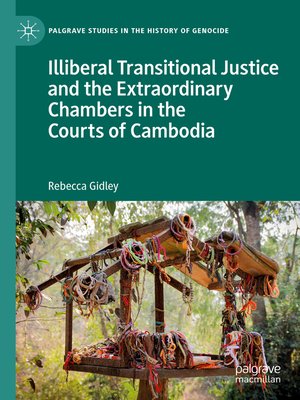Illiberal Transitional Justice and the Extraordinary Chambers in the Courts of Cambodia
ebook ∣ Palgrave Studies in the History of Genocide
By Rebecca Gidley

Sign up to save your library
With an OverDrive account, you can save your favorite libraries for at-a-glance information about availability. Find out more about OverDrive accounts.
Find this title in Libby, the library reading app by OverDrive.



Search for a digital library with this title
Title found at these libraries:
| Library Name | Distance |
|---|---|
| Loading... |
This book examines the creation and operation of the Extraordinary Chambers in the Courts of Cambodia (ECCC), which is a hybrid domestic/international tribunal tasked with putting senior leaders of the Khmer Rouge on trial. It argues that the ECCC should be considered an example of illiberal transitional justice, where the language of procedure is strongly adhered to but political considerations often rule in reality. The Cambodian government spent nearly two decades addressing the Khmer Rouge past, and shaping its preferred narrative, before the involvement of the United Nations. It was a further six years of negotiations between the Cambodian government and the United Nations that determined the unique hybrid structure of the ECCC. Over more than a decade in operation, and with three people convicted, the ECCC has not contributed to the positive goals expected of transitional justice mechanisms. Through the Cambodian example, this book challenges existing assumptions and analysesof transitional justice to create a more nuanced understanding of how and why transitional justice mechanisms are employed.







